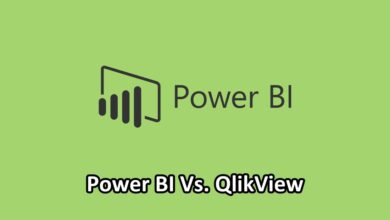Difference Between Digital Marketing And Social Media Marketing(With Table)
The internet has done wonders for marketers and it has opened up a whole new world of opportunities for them. The world has changed a lot in the last few years. Businesses have to find new ways of marketing their products and services in today’s modern world. Digital marketing refers to online advertising, content marketing, SEO, and other ways of generating attention for your business online. Social Media Marketing is based on using social media sites like Facebook, LinkedIn, and Twitter as a means of reaching your audience. In this article, we will understand the complete difference between digital marketing and social media marketing with the help of the following sub-topics.
What is Digital Marketing?
Digital marketing is the process of using electronic channels to market a company’s product or services. This can include things like email, search engine optimization (SEO), pay-per-click (PPC) advertising, social media, and more.
Digital marketing is different from traditional marketing in a few key ways. First, it’s much more targeted. You can use digital marketing to reach people who are already looking for what you have to offer. Second, it’s more interactive. With digital marketing, customers can get in touch with you directly – through things like chatbots and social media – rather than having to go through a middleman. Finally, it’s more engaging. Digital marketing allows you to tell your story in a way that’s both visual and interactive, which is much more likely to hold people’s attention than a traditional ad.
Advantages Of Digital Marketing
Comparing digital marketing to traditional marketing strategies has a number of benefits.
- Reach a huge audience with little effort – Businesses may easily and rapidly reach a global audience online(through the internet).
- Cost-effective – One of the most economical methods of reaching your target audience is through digital marketing.
- Personalized messages – Businesses may send highly customized communications to their target market through digital marketing, which increases the possibility of conversion.
- Increased ROI – With the ability to track data and measure results, businesses can see a higher ROI for their digital marketing campaigns than traditional marketing techniques.
- Increased brand awareness – As digital marketing campaigns are often shareable, they help to increase brand awareness and reach beyond the original target market.
Forms Of Digital Marketing
Following are the five different forms of digital marketing:
- SEO, or “search engine optimization,” is the abbreviation for this practice. It simply refers to the process of enhancing your company website so that it will be more visible when customers search for goods or services associated with your company on Google, Bing, Baidu, and other search engines. It is regarded as a form of non-paid internet marketing.
- SEM(Search Engine Marketing) – It is the practice of adopting compensated methods to improve search prominence. Advertisements from brands are paid to show up as search results on search engine result pages.
- Social Media Marketing(SMM) – This type of digital marketing refers to marketing and advertising that uses social media platforms like Facebook, Instagram, Linkedin, Twitter, Whatsapp, youtube, etc. It can be both paid and non-paid.
- Affiliate marketing – It is an advertising strategy in which businesses pay others (such as bloggers) to promote their goods and services and drive sales. On their website, application, or blog, affiliates display advertisements or promote the goods or services. A commission is given on leads that result in sales.
- Content Marketing – Content marketing is a marketing strategy used to attract and engage the target audience by creating and sharing relevant and valuable articles, videos, podcasts, and other media.
What is Social Media Marketing?
Social media marketing is the practice of interacting with and establishing relationships with clients using social media platforms like Facebook, Twitter, Instagram, LinkedIn, etc.
The goal of social media marketing is to create content that is interesting and engaging, while also promoting your brand or product. Social media marketing helps marketers reach out to more people in a way that is informal and interactive. It is a way to connect with your customers, build loyalty, and increase sales.

Further social media channels are used to build relationships with customers through two-way communication. This allows businesses to receive feedback from customers in real-time, and create a more personal relationship. Customers are also more likely to recommend products and services that they have interacted with on social media. The primary channels of social media include Facebook, Twitter, LinkedIn, and Instagram. Others are Snapchat, Pinterest, and Google plus.
Advantages Of Social Media Marketing
Digital marketing and social media marketing are two terms that are often used interchangeably, but they are actually quite different.
- Increased reach: With over 2 billion active users on social media, your potential audience is huge.
- Greater engagement: Interaction and engagement are the foundation of social media. You’re on the right track if you can get people talking about your brand.
- More cost-effective than traditional marketing: Traditional marketing techniques can be very costly. Social media marketing is a more affordable option that can still be highly effective.
- Builds relationships: Social media is a great way to build strong relationships with your customers and create a loyal following.
- Helps you stay ahead of the competition: By being active on social media, you can stay up-to-date with what your competitors are doing and find new ways to stand out from the crowd.
Comparison Table

Key Differences Between Digital and Social Media Marketing
Digital marketing and social media marketing are two terms that are often used interchangeably, but there are some key differences between the two.
- Reach – Digital marketing typically has a wider reach than social media marketing. This is because digital marketing channels like search engine optimization (SEO) and email allow you to target a broader audience with your message.
- Engagement – Social media marketing is all about engaging with your audience, building relationships, and creating a community around your brand. Digital marketing, on the other hand, can be more focused on selling and conversion.
- Cost – Social media marketing is generally more affordable than digital marketing since you can use free platforms like Twitter and Facebook to reach your target market. However, digital marketing channels like pay-per-click (PPC) advertising can be more expensive.
- Flexibility – Both digital and social media marketing offer a lot of flexibility in terms of how you can execute your campaigns. However, digital marketing may have an edge when it comes to customizing your messages for different demographics or targeting specific customers with laser-focused campaigns.
- Analytics – Both digital and social media marketing requires tracking and measuring data to gauge success rates. However, digital marketing typically offers more comprehensive analytics tools to help you track ROI (return on investment).
- Integration – It’s getting easier to integrate digital and social media marketing tactics as technology advances. For example, you can now run targeted ads on social media platforms that are based on the behavior of users who visit your website.
Conclusion
Digital marketing and social media marketing are two terms that are often used interchangeably, but there is a difference between the two. Digital marketing is a broader term that includes all marketing efforts that use electronic devices, such as computers, laptops, smartphones, and tablets. Social media marketing, on the other hand, refers specifically to marketing efforts that take place on social media platforms like Facebook, Twitter, Instagram, and Snapchat.
Both digital marketing and social media marketing can be effective ways to reach your target audience. However, it’s important to understand the difference between the two so you can choose the best strategy for your business.




5 Comments